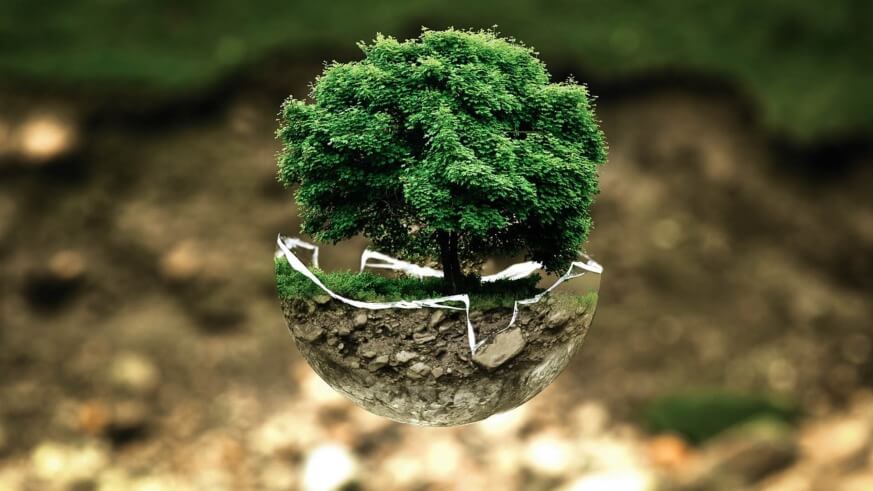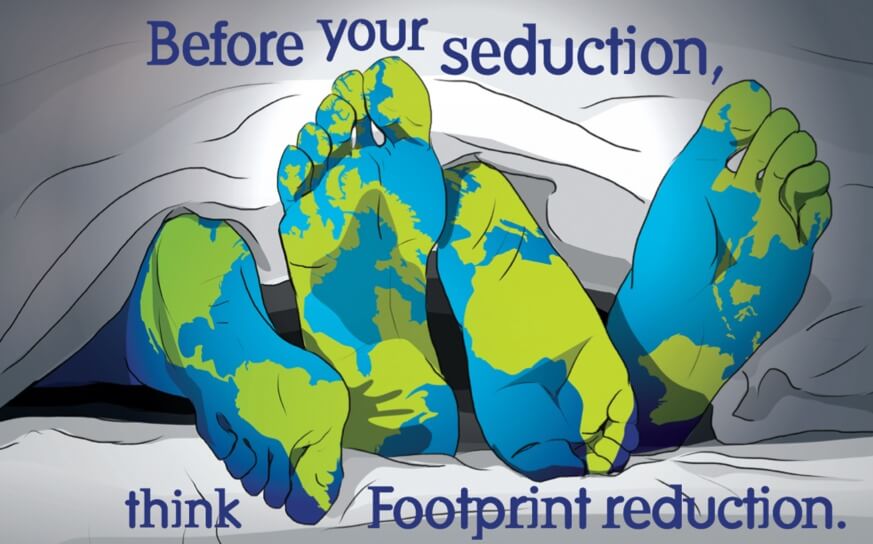There are countless very-good reasons to practice safe sex, but on Earth Overshoot Day, which this year falls on Wednesday, one of them will be to highlight how safe sex can reduce your ecological footprint.
This Earth Overshoot Day, the Center for Biological Diversity and Global Footprint Network will distribute more than 10,000 free endangered species condoms in 10 U.S. cities with the largest carbon footprint to encourage Americans to have safe sex.
The vibrant, special-edition condoms — featuring the slogan “Before your seduction, think footprint reduction” — will be handed out in New York City; Philadelphia; Los Angeles; Chicago; Miami; Dallas; Detroit; Houston; San Jose, California; and Washington, D.C.
“As human population continues to rapidly grow, we clearcut trees, burn fossil fuels and bulldoze wild spaces. The Earth can’t keep up,” said Sarah Baillie, the center’s Endangered Species Condoms coordinator. “We see evidence of this in shrinking habitat, the global climate crisis and crashes in wildlife populations. We’re blowing through nature’s capital, and wildlife and the planet are suffering for it.”
Metro readers in Philadelphia can find volunteers handing out the Earth Overshoot Day endangered species condoms at various locales across the city, including Philadelphia Academy of Fine Arts, Spruce Street Harbor Park and South Street.
New York readers can find them throughout Central Park and at “some bars and nightclubs,” Baillie said.
The endangered species condom packages for Earth Overshoot Day began in 2009 and include two condoms, info on the endangered species featured, facts on the link between unsustainable human population growth and extinction and solutions including contraception, reproductive health care and more.
So what is Earth Overshoot Day?

According to the Center for Biological Diversity, Earth Overshoot Day is “the day humanity exhausts the resources the planet can replenish in a year.” As if that’s not scary enough, with this year’s day falling on Aug. 1, it’s “five months too soon — and the earliest since the world first went into ecological overshoot.”
To calculate Earth Overshoot Day, the Global Footprint Network divides the amount of ecological resources the planet generates each year by humanity’s ecological footprint, aka the amount of land and water needed to produce the resources humans consume and absorb the waste they create.
The number gets multiplied by 365 to determine how many days Earth’s resources will last at humanity’s current rates of consumption. In 2018, our planet’s resources lasted 213 days — or until Aug. 1, the network determined, putting the rest of the year into “overshoot.”
“If everyone lived like Americans, we’d use five Earths,” Baillie said. “Since we only have one Earth, this clearly isn’t sustainable. Our condoms are a striking way to start the conversation about how each of us can help move the date.”
Other ways to address the overshoot include reducing meat consumption, developing wildlife-friendly renewable energy sources and universal access to birth control and family planning, the Center for Biological Diversity said.




























